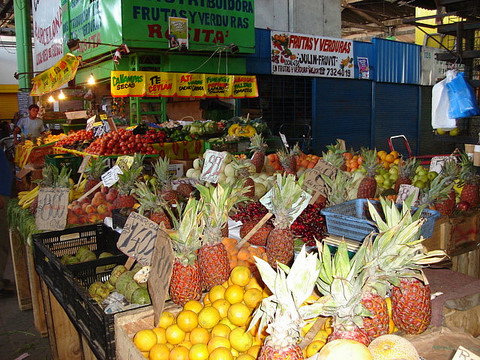Although increasing numbers of hotels, resorts and tour companies support sustainable practices, these “green” options often come at a premium. As a result, travelers sometimes feel as though they must choose between their environmental consciousness and their budgets. Yet nothing could be further from the truth. Making simple choices to go green while traveling may in fact have the added bonus of saving you money on your trip.
Walk
If you aren’t pressed for time, the most eco-friendly way to explore a city is to walk. Walking tours are often more affordable than other guided tours because there is less overhead. Not only is walking free, it can also help you experience a place at ground-level in a way that buses, cabs, or trains can’t. As an added bonus, it’s also good for your health. Making a conscious effort to walk or hike while on vacation is a great way to keep fit while on vacation.
Bike
Although flying and driving may be fast and convenient ways of getting around, both are expensive and contribute to air pollution. To reduce your carbon footprint and stretch your budget, consider going on a bike tour of instead of a tour bus. Bike tours can be a fun way to meet other travelers and get exercise on your trip. Renting a bike – or buying one for longer stays – is also an option if you’d like to discover a destination at your own pace or are need a way to get around faster than walking.
Use Public Transportation
Taking public transportation instead of hopping in a taxi or renting a car may require a bit more planning, but trams, subways and other modes of mass transport are much more energy efficient and more affordable ways to get around. Public transportation is also a great way to interact with people who live in the area and to experience places off the beaten path. It can also be a goal in itself. For example, British expat Daniel Tunnard is filming a documentary and writing about riding every city bus in Buenos Aires, while Australian writer and teacher Peter Davies has launched a project to ride every metro line and explore the area around every station in Mexico City.
Lodging
Although eco-lodges are becoming more popular and increasingly more affordable, you can also try to conserve energy at hostels and budget hotels with sustainable practices. Wear multiple layers instead of turning up the thermostat, set a timer for your shower time and ask the owner not to deliver a newspaper to your door. Even if these measures won’t save you money off your bill per night, at least you can find ways to conserve energy without splurging on an eco-lodge if it doesn’t fit into your budget. Camping is also an option if you enjoy hiking and have room to pack supplies. Many hostels will even let you camp on their grounds at cheaper rates than they charge for their rooms.
Much of the food packaging on airplanes, trains and long-distance buses is not recyclable, so if you have the choice of paying for a meal in transit or bringing your own pack granola, cereal, trail mix and even fruits and veggies in a reusable container to save money and spare the landfills. Also, patronize local markets whenever possible. It’s often cheaper to cook your own food from scratch than eating out, and you’ll get the chance to experiment with native produce or spices that haven’t been shipped in.
Water
Bring your own water bottle instead of paying for bottled water everywhere you go, and ask to refill the bottle at casual restaurants instead of using paper cups. If you plan to travel to a country where tap water isn’t always safe to drink, consider investing in a water bottle with a built in purifier or filter that you can reuse multiple times before replacing. You’ll save money on bottled water, which carries a hefty 4,000% markup.
It isn’t difficult to stick to a budget when you’re committed to eco-friendly travel; in fact, if you choose to be environmentally conscious while traveling, you may be surprised at how easy it is to save money.
Read Ethical Traveler's Reprint Policy.

